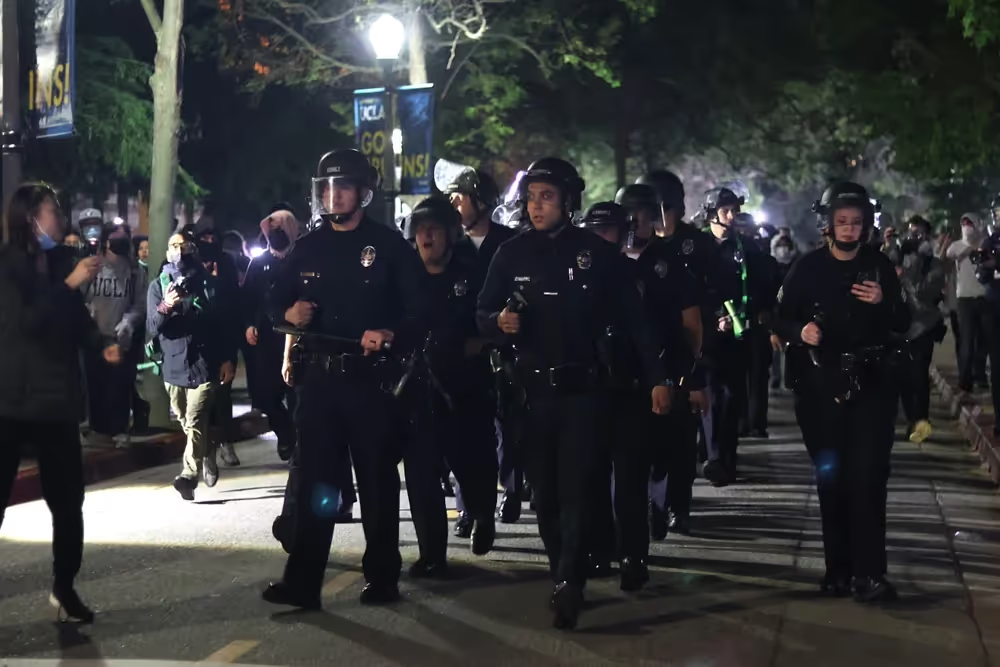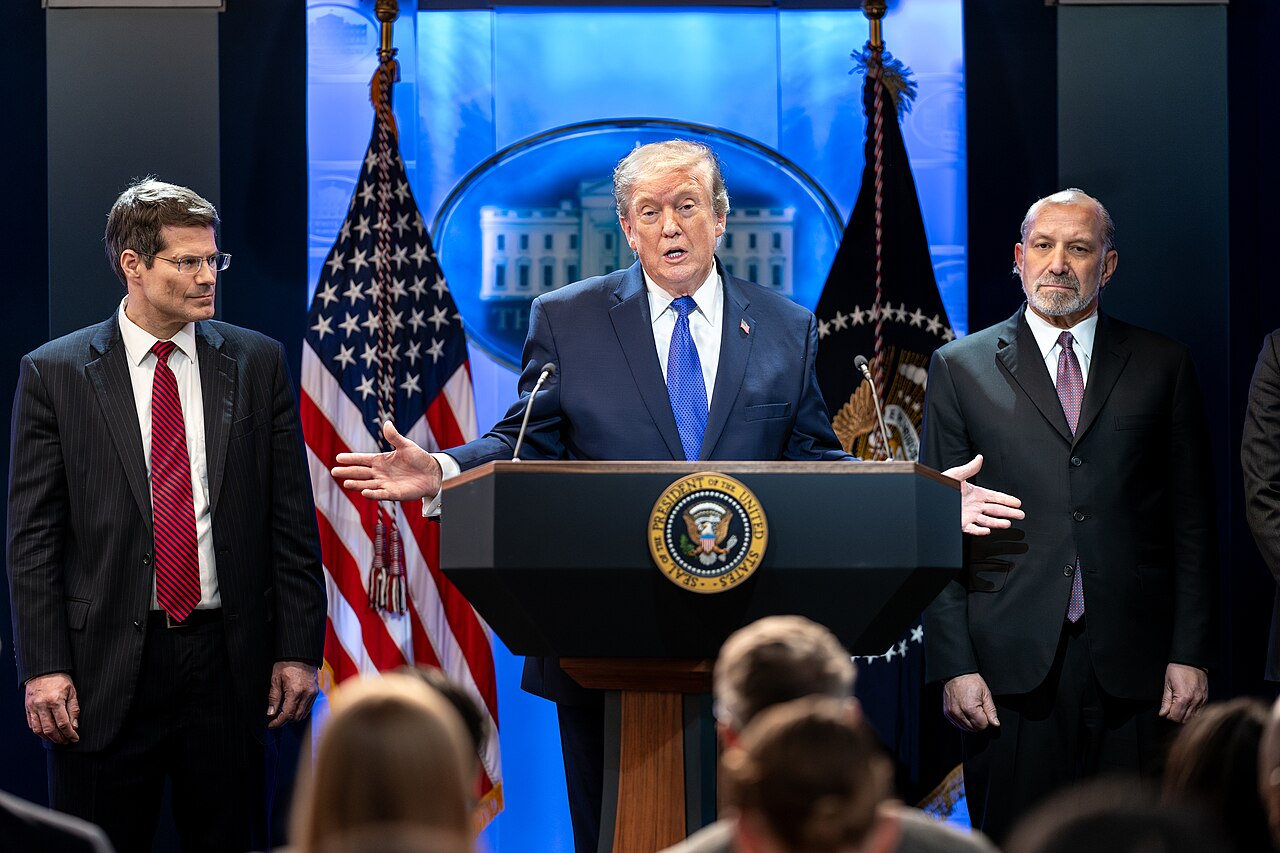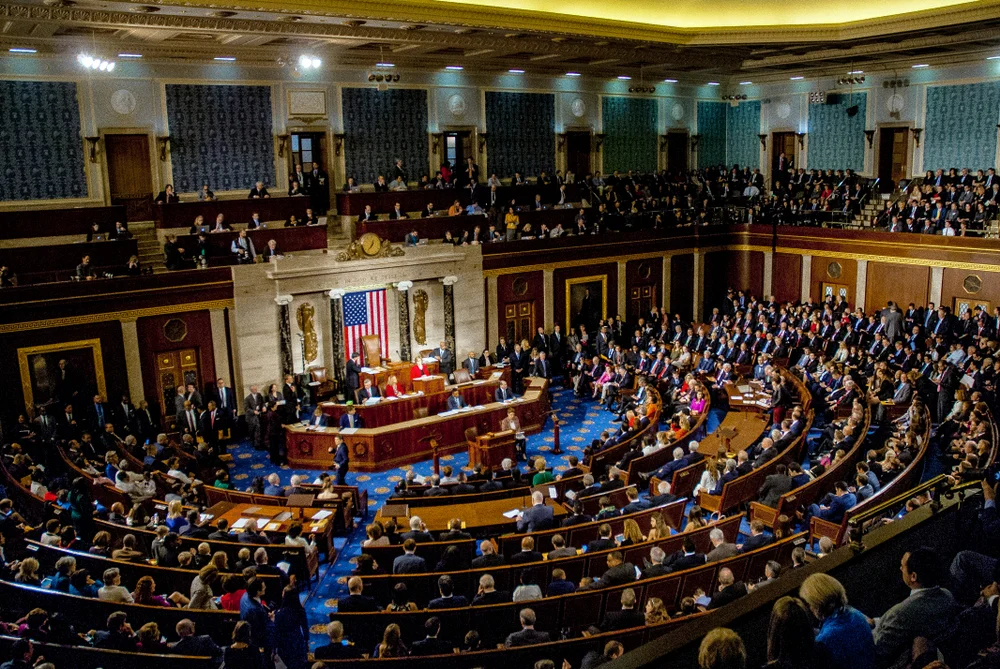
Combatting Antisemitism on Campus
Foreign nationals have no inherent right to study at American universities while promoting terrorist ideology.
President Trump’s new executive order activating “additional measures to combat anti-semitism” is mostly “encouragement.” It encourages federal agencies to think about and eventually use the tools at hand to combat discrimination against Jews, which has become a rampant problem on college campuses. It suggests that the Department of Education should confront its failed policy of settling complaints against those universities for peanuts rather than pushing universities to change course. But its most significant provision requires the State, Education, and Homeland Security secretaries to develop a process that would lead “as appropriate and consistent with applicable law, to investigations and, if warranted, actions to remove” non-citizens who support terrorism in various ways.
The broadest and most controversial provision of the statute cited in the order, the Immigration and Nationality Act, allows for the deportation of any “alien who…endorses or espouses terrorist activity.” While terrorism is used colloquially to mean many different things, “terrorist activity” would at least cover organizations designated Foreign Terrorist Organizations (FTOs) like Hamas, Hezbollah, and (after President Biden un-designated and President Trump re-designated them) the Houthis. The relevance of this provision to the broader aims of stamping out antisemitism is clear: College students, many of whom are foreigners on student visas, have been parading around campus endorsing in various ways precisely those groups aiming to intimidate Jews (and non-Jewish Zionists) out of the public discourse to make support for Israel look like a fringe position. Deporting them would get these rule-breakers away from their targets and liberate the academy to talk about complex issues without students telling Jews to “go back to Europe.”
This has understandably drawn criticism from those who take an expansive view of the First Amendment’s application to expressive activities. The Foundation for Individual Rights and Expression warned that the order could reach “beyond illegal activity to instead punish students for protest or expression otherwise protected by the First Amendment.” Those who do not take a categorically expansive view of speech have focused on supposed conservative hypocrisy on the issue of campus free speech. (Of course, by definition, the hypocrisy would have to run both ways; now progressives consider campus free speech a serious problem?) Progressive critics have noted that supporters of this executive order include many individuals and institutions that used free speech as a rallying cry against progressive censorship in the form of DEI and shouting down disfavored speakers but support this dramatic form of censorship when it targets progressive activism.
As a legal matter, these objections miss the mark. Not all behaviors that are expressive in nature are protected speech and with good reason. There are other important considerations, like preventing violence or prohibiting perjury, that warrant limiting speech, even based on its content. The Immigration and Nationality Act has long given the executive branch broad authority to exclude or remove foreign nationals who endorse or espouse terrorist activity. Courts have consistently upheld these provisions, recognizing a legitimate national interest in preventing the importation of non-citizens who espouse ideologies antithetical to American interests and values. This authority has been routinely exercised across administrations of both parties and, obviously, has not been struck down as an unconstitutionally broad restriction on the freedom of speech.
Of course, even FIRE admits that “students who commit crimes – including vandalism, threats, or violence – must face consequences.” That points to the great irony here: Schools’ failure to address criminal conduct led to this point. Espousing support for terror is more clearly a form of speech than many of the disruptive activities universities have defended as protected expression. Whether that speech is protected is a different story. But when schools refuse to punish students for blocking Hillel and Chabad houses, vandalizing school property, or preventing some students from traversing campus under the guise of “protest,” they blur the distinction between speech and conduct that would provide the basis for arguing against this executive order. If schools had just mustered the courage to expel students (and fire faculty) who violated university rules with their conduct, this issue would have died down long ago. But our universities have proven untrustworthy in enforcing their rules evenhandedly, showing a distinct reluctance to remove individuals engaging in discriminatory conduct. More profoundly, if schools had not lumped in all kinds of expressive conduct with speech, we would not have such a hard time understanding the difference between protected and non-protected speech.
It is the opposite of hypocrisy for free speech advocates to accept that the law makes some expression punishable. The real question is: what kinds of expression warrant punishment? Sometimes, answering that is relatively easy because it concerns time, place, and manner restrictions: Don’t make tons of noise in the middle of the night because your fellow Americans need to sleep, or don’t take up an entire quad your school needs as a thoroughfare. We should note that even these examples manifest a serious theory of the limitation on our prized right. Our rules and laws recognize things as mundane as sleep or clear walking paths as legitimate counterbalances to free-speech interests. Society and its laws exist to do more than allow people to speak freely.
But drawing the line between protected and unprotected speech is often much harder, as in content-based restrictions like espousing support for FTOs. As a legal matter, courts look to the rationality of the law, its relation to its goals, and the importance of those goals. That reflects a pretty good framework for considering when such restrictions are legal and wise. Is there a real threat posed by foreigners espousing support for terrorism on American soil? If there is, is deportation an appropriate remedy? By my lights, the answer to the former is ‘yes’, and one need look no further than the mobs of recruits gathering to intimidate, vandalize, and disrupt campuses across the country. Foreign terror ideologies are a real threat to the rule of law in America,and they spread with significant proselytizing done by foreigners who have no inherent right to be here – much less use their time here to chant their support for Hamas murdering Jews. As to the latter, deportation seems eminently appropriate. We aren’t stopping anyone from expressing pro-terror ideologies, nor even preventing Americans from hearing them, but we are under no obligation to allow terror sympathizers to use our universities as Petri dishes for their poison.
But I digress. The bottom line is that even this order, which targets speech as squarely as any measure the government might use to fight antisemitism, remains on firm legal ground. If explicit statutory authorization isn’t persuasive enough, consider it perjury. Foreigners seeking visas must disavow support for terrorism as part of their application. Subsequent expressions of support for terrorism, therefore, amount to a form of fraud regarding their visa eligibility. No constitutional principle protects deliberate misrepresentation in immigration proceedings. The statute authorizing deportations for speech that has certain disfavored content is on solid ground, not just because it is a rational law narrowly tailored to achieve a legitimate governmental interest, but because it simply authorizes punishment for lying to get into the country. (I suppose we could see students facing deportation claiming they did not support terrorism when they applied but came to support terrorism over the course of their time at, say, Columbia University. That could lead to some interesting places, none of which would be suitable for universities.)
As a matter of policy, this approach recognizes that America’s immigration system should advance rather than undermine our national interests. Foreign nationals have no inherent right to study at American universities while promoting terrorist ideology. If critics believe there is something uniquely worthy about protecting pro-terror speech by foreign students, they should make that case directly and specifically. But absent some theory of why espousing terrorist ideologies really poses little threat to legitimate American interests–like antidiscrimination, preservation of property, or security from a violent uprising–their case faces an uphill battle. Abstract free speech concerns ring hollow when the students in question routinely violate campus policies, create hostile environments for Jewish students, and respond to American educational opportunities with anti-American extremism. Perhaps they would be more compelling if paired with a theory of why espousing terrorist ideologies should be treated as part of legitimate campus discourse rather than something that prevents it, alongside the discrimination support for terrorism fosters. Crying “hypocrisy” does not fare much better. Complaints about chilled expression appear to be little more than special pleading for a favored political cause – one that deserves no special protection under our immigration laws.
Tal Fortgang is an adjunct fellow at the Manhattan Institute.
Constitutionalism

Amicus Brief: Hon. William P. Barr and Hon. Michael B. Mukasey in Support of Petitioners
Former AGs Barr and Mukasey Cite Civitas in a SCOTUS Brief

Rational Judicial Review: Constitutions as Power-sharing Agreements, Secession, and the Problem of Dred Scott
Judicial review and originalism serve as valuable commitment mechanisms to enforce future compliance with a political bargain.

Supreme Court showdown exposes shaky case against birthright citizenship
Supreme Court will hear challenges to Trump's order ending birthright citizenship, testing the 14th Amendment's guarantee for babies born in America.

Trump’s Tariff Tantrum
Trump leaps from the frying pan into the fire in the aftermath of Learning Resources v. Trump.

The Administrative State’s Sludge
Congress has delegated so much power across so many statutes that it’s hard to find a question of any public importance to which some agency cannot point to policymaking authority.


.avif)










.avif)
.webp)


